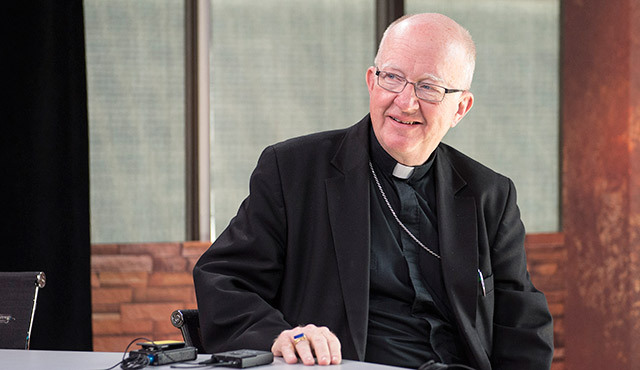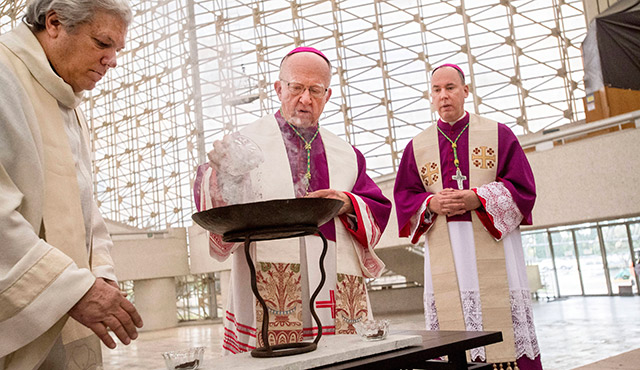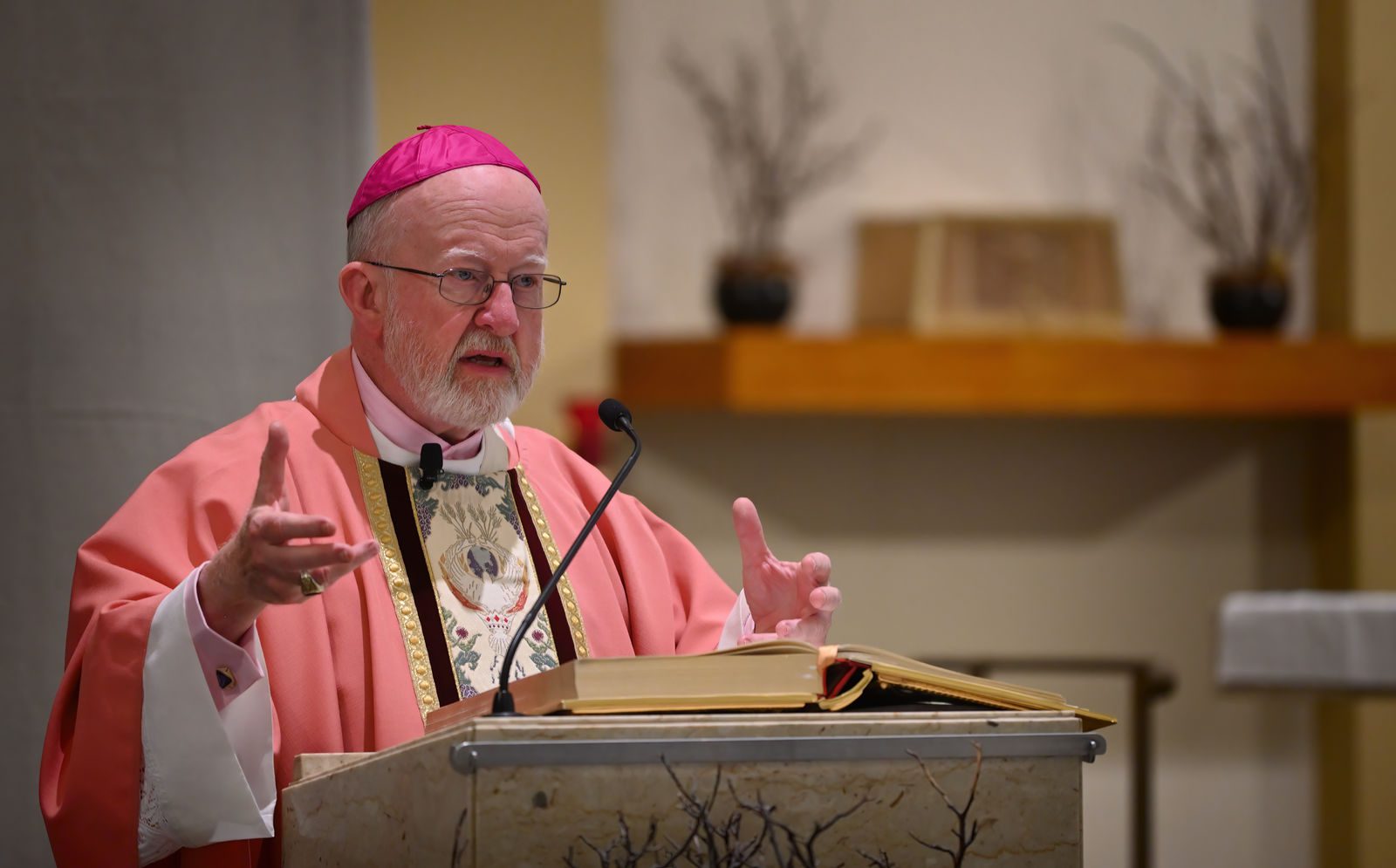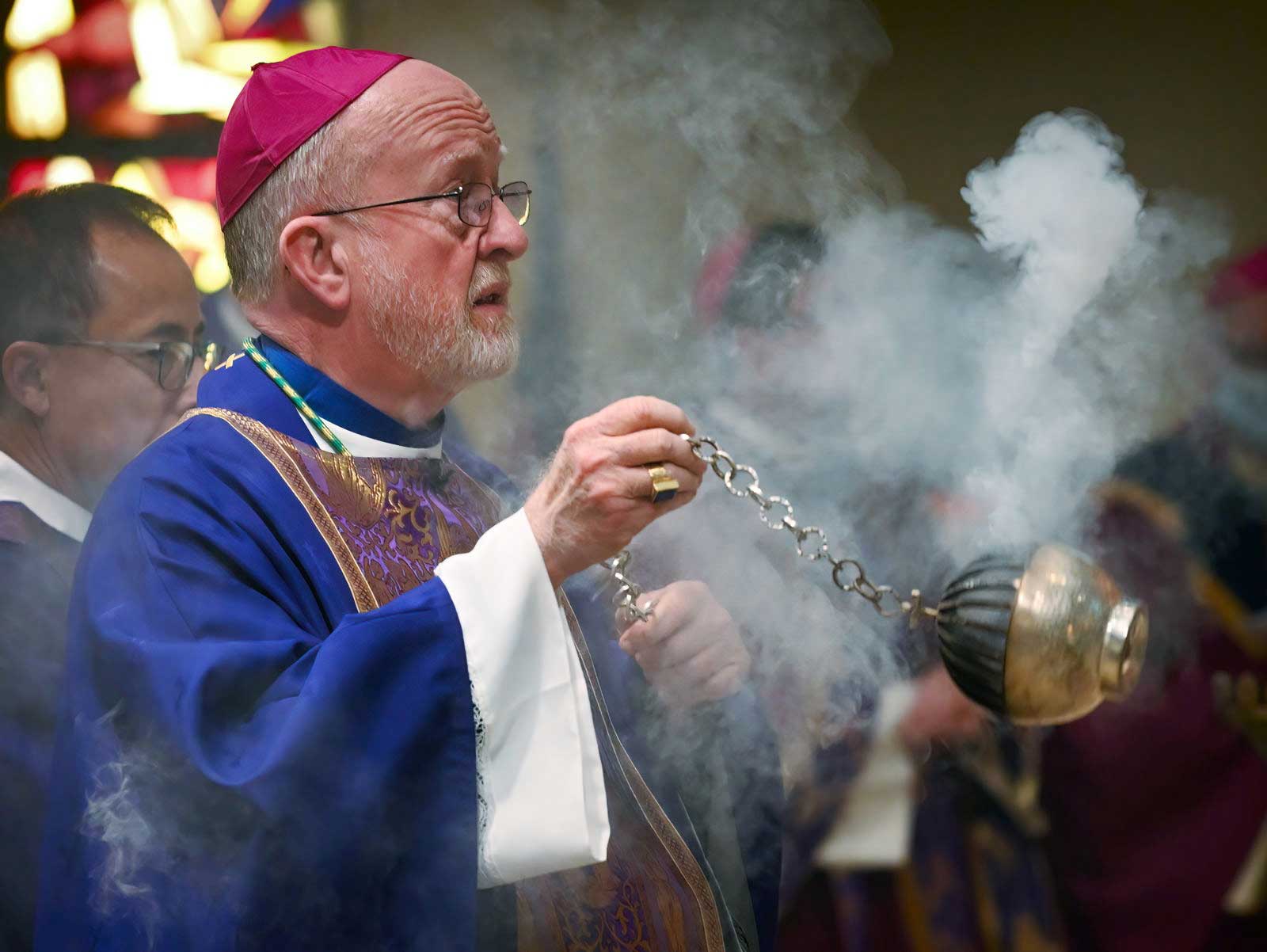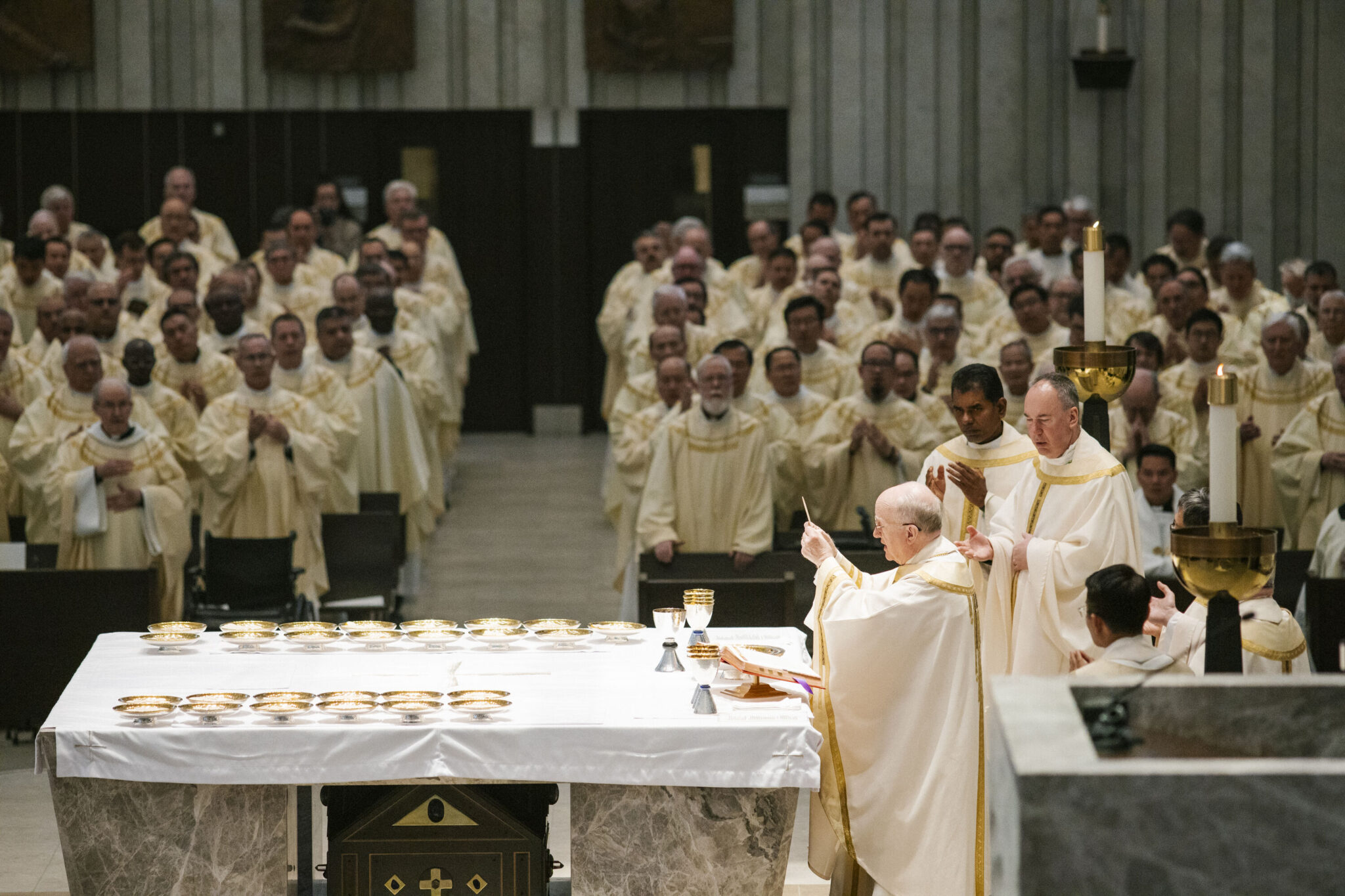Diocese of Orange to host tour of Missionary Image of Our Lady of Guadalupe
Diocese of Orange to host tour of Missionary Image of Our Lady of Guadalupe
The iconic depiction of the Virgin Mary is deeply significant to those of Hispanic heritage and is known to be associated with miraculous phenomena.
Click here for the Spanish translation of this press release. Haga clic aquí para Español
Starting on Nov. 1, the Roman Catholic Diocese of Orange will be hosting a tour of the Missionary Image of Our Lady of Guadalupe, a historic apparition of the Virgin Mary that is deeply symbolic and significant to Southern California’s Catholic faithful, particularly those of Hispanic heritage.
The Missionary Image is a Catholic Church-authorized digital image of the original Guadalupe tilma image, which dates to 1531 and is above the main altar at the Basilica Shrine of Our Lady of Guadalupe in Mexico City. Like the tilma, the Missionary Image has been associated with miraculous phenomena, such as doctors hearing a human heartbeat where the Virgin Mary carries the Christ Child and reports of oil dripping from the Image.
The Missionary Image tour begins on Nov. 1 at Christ Cathedral in Garden Grove and ends at St. Vincent de Paul in Huntington Beach on Nov. 24. The public is invited to venerate the Image at host parishes and sites throughout the Diocese of Orange. For a complete list of sites hosting the image, visit dioceseofocstg.wpengine.com/tilma
Media are invited to cover the Nov. 1 veneration of the Missionary Image at Christ Cathedral from 1:30 p.m. to 3:30 p.m. Interviews with key Diocese stakeholders will be available.
While there are many pictures in circulation and routinely taken of the tilma in Mexico City, the touring Missionary Image is the only one with a Catholic Church-recognized title, mission and certification. Diocese of Orange leaders hope that veneration and viewing of the Image will encourage a new era of evangelization, Catholic conversion, and create a culture of life and civilization of love.
“The message of Our Lady of Guadalupe is powerful,” said the Very Rev. Al Baca, episcopal vicar for the diocese’s Office of Ecumenism and Inter-religion, which is sponsoring the tour. “Back in 1531, the Virgin Mary appeared during a time of upheaval and division, of conflict between two different civilizations. She identified herself with the Indigenous through their dress, customs and language, Nahuatl. Her message was simple: ‘Am I not your mother?’”
“Even today, Our Lady of Guadalupe brings peace, justice, comfort and unity to a world that finds itself often divided and in conflict. Especially for Catholics, her message is one that inspires as much as it challenges to be true children of her Son, Jesus Christ.”
In 1999, a high-resolution digital image was made from the original tilma. Four Missionary Images were made from the digital image. These Missionary Images are 4 feet by 6 feet, which is the exact size of the original miraculous image on the tilma. The rector of the Basilica of Our Lady of Guadalupe in Mexico City, Monsignor Diego Monroy, blessed each of the four Missionary Images. One of these Images will be in the Diocese of Orange for veneration. The four Missionary Images are the only Images that were created with the full control and approval of the Catholic Church.
The Diocese of Orange will host two educational presentations about the Missionary Image. Fr. Juan Navarro will give a talk in Spanish, titled “Una Señal Clara” (in English, “A Clear Sign”), on Monday, Oct. 28, at 7 p.m. in the Arboretum on the Christ Cathedral campus. The second presentation, titled “Our Lady of Guadalupe: Science and the Tilma” will be given by Fr. Robert Spitzer, S.J., on Saturday, Nov. 2, at 7 p.m. also in the Arboretum. Both talks are free and open to the public.
*
Media Coverage of the Missionary Image
What: Media are invited to cover the first day of the Missionary Image of Our Lady of Guadalupe at Christ Cathedral.
Where: Christ Cathedral, 13280 Chapman Ave., Garden Grove, CA 92840
When: 1:30 p.m. to 3:30 p.m., Nov. 1, 2024
Visuals and Interviews: The Missionary Image, as well as the faithful visiting, will be available, as will key stakeholders for on-camera interviews.
RSVP: Bradley Zint – bzint@rcbo.org (657) 390-3914 and Jarryd Gonzales – jgonzales@rcbo.org (714) 282-3075
*
Background on Our Lady of Guadalupe apparition
The story of the Our Lady of Guadalupe Marian apparition dates to December 1531 in Mexico. Juan Diego, an Aztec peasant and recently converted Catholic, saw the Virgin Mary appear to him on a hill near present-day Mexico City. In his native language, Nahuatl, she asked that a church be built where she appeared to show the infinite majesty and mercy of God to all His children. However, when Juan Diego told the local bishop, the Most Rev. Juan de Zumarraga, of the request made by the woman of the apparition, whom Diego identified as the Blessed Mother, the bishop did not believe him and asked for a sign of the woman’s identity.
Diego’s uncle, Juan Bernardino, also reported seeing Our Lady of Guadalupe. Again, she appeared to Diego and instructed him to gather flowers from a nearby hill — Tepeyac Hill. In December, the hill would normally be barren, but Castilian roses (not native to Mexico, but were found in Spain where Bishop Zumarraga was from and would recognize) were blooming. The Blessed Mother arranged the roses in Diego’s tilma, which is like a cloak.
Diego then went to the bishop to deliver the sign he requested. Upon opening the tilma, the roses fell to the ground and revealed the image of Our Lady of Guadalupe on the tilma.
The life-sized image displayed symbols that were meaningful to the Indigenous Aztec people. For example, the black maternity sash around her waist was a symbol of being with child, and wearing her hair loose was a symbol of virginity. Her eyes were downcast in humility with her hands clasped in prayer, showing she was not a god, but she was praying to God. Standing on the crescent moon and in front of the sun blocking its rays symbolized that the child in her womb was stronger than their pagan deities and was the one true all-powerful God. To the Indigenous Aztec people, the combination of these symbols meant that she was the Virgin Mother of the one true all-powerful God.
In the centuries since the apparition in 1531, the Image has become Mexico’s and the Hispanic diaspora’s most popular religious and cultural symbol. Like the Shroud of Turin, the Image has many characteristics that are considered to be naturalistically inexplicable — miraculous. Fr. Robert Spitzer, S.J., will present several of these characteristics in his November 2nd talk, “Our Lady of Guadalupe: Science and the Tilma.”
Our Lady of Guadalupe is one of the few Marian apparitions in the world that has received the Holy See’s highest level of approval.
*
About the Roman Catholic Diocese of Orange
With 1.3 million Catholics, 58 parishes, five Catholic centers and 36 schools, the Roman Catholic Diocese of Orange is one of the largest and most diverse faith communities in the United States. The Diocese empowers Catholics across Orange County to have an active life of faith that is integrated and woven into the fabric of their daily lives through the community and sacramental life of the Church. Under the leadership of Bishop Kevin Vann, the Diocese works to establish and support dynamic, vibrant parishes and schools welcoming all to live the Gospel with faith, joy, charity and unity. Christ Cathedral, the spiritual home of the Bishop of Orange, was dedicated in July 2019. Learn more about the Diocese of Orange at dioceseofocstg.wpengine.com


